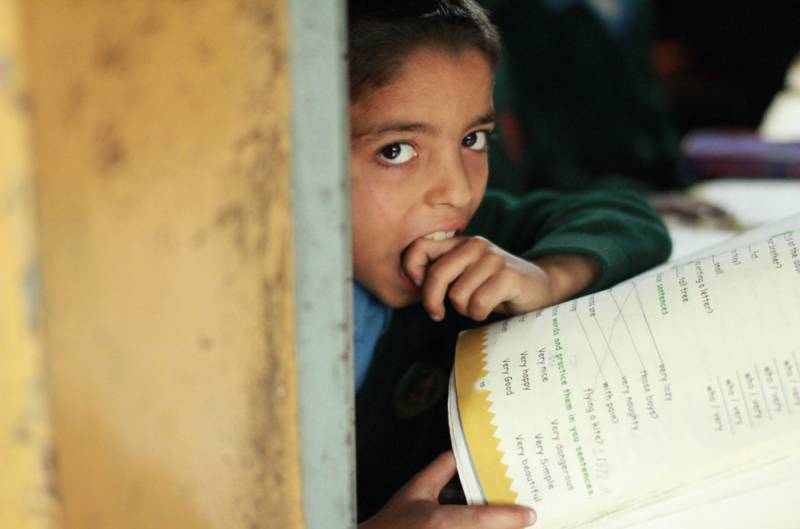The Constitution of Pakistan guarantees the right to education for all children aged 5-16 years. Unfortunately this is not what is happening. The number of children getting education is on the decline. This has emerged as one of the issues in this general election.
According to UNICEF report of 2015 there are 6.5 million children are currently not in primary school and another 2.7 millions are not in lower secondary school. According to a UNESCO report, Pakistan is ranked second in the world based on the number of out-of-school children. Females are more uneducated. There are many reasons that the next elected government should give priority to education. In fact there is need to enforce education emergency in Pakistan.
The education system has various issues. “The problems includein appropriate curriculum, inefficient teaching staff and a gender gap which limits education opportunities for women. Major chunks of budget are used for short term projects, which can be marketed politically,” said Usman Ali the co-founder of Ghani Foundation, which works on providing education to children across the board.
Dr Ajaz Anwar said that first line of defence of a country is education. “Spending just a small amount of budget on education is cruel. The little amount that is reserved for education is further divided into teachers’ salaries and the maintenance of schools. This way, the system cannot update itself,” he said.
Educationist Dr Arifa Sob Khan said it was deplorable that children do not go to school. “Education should construct a child’s personality and inculcate ethics in him.
“Our system is not doing any of this. Instead it is promoting a syllabus which does not develop a child’s mind.
“The standard of education is not up to date with current trends. We do not have free education which is why majority of the population cannot afford it,” Dr Arifa said.
Professor R.M Naeem said education should be totally free at least till matriculation, as it is in other countries. “The education syllabus should be same everywhere, otherwise there will always be a difference between the public and private schools.
“A sound education system contains a universal curriculum and compulsory free education at least at the primary level.
“In Pakistan primary level is the most important yet most neglected area. We are giving text to read and memorize. This is not education.
“We should promote activity-based learning as it is done in other countries.
“There is a shortage of teaching staff in the public sector due to low salaries. Teachers are incompetent in the whole education system. They have to work several jobs to earn enough for themselves. With this situation, they cannot devote themselves thoroughly to teaching,” Naeem said.
In Pakistan, the public and private sector of education are completely different from each other. While the public sector has a very low standard of education, the private sector has become a business.
Writer and educationist Asghar Nadeem Syed said, “The private sector is an empire which is continuously building itself and making millions. This is an extremely direful problem of the country. And this problem is not given attention by the government.
“Our government is unaware of the damage it will do to the future generations. They do not care of the potential danger that can occur when millions of people lack basic education and skills of any kind,” he said.
The country has experienced many failed education policies ever since independence. It has never achieved universal compulsory education, not even at the primary level.
Inefficiency of the government, lack of funds for educational purposes and the absence of effective planning add to the education emergency. “Education has never been a priority. The money is in the hands of corrupt people who do not want to use it for education.
“The establishment, bureaucracy and the institutions are equally responsible for the problem. An illiterate country suits them. They want such a country where people do not have intellect and perceptiveness, so that they can rule without any obstacle,” he said.
Dr Arifa also held a similar view. “Our leaders do not support educating the masses, because it will lead them to question the leaders and their agenda. With education, people can question the authority, which is not suitable for the leaders. Hence, they promote education only in theory,” she said.
Poetess Tasneem Peerzada criticized the political system. “Our political system is caught up in corruption and money-making. As long as it is like this, the social system will remain paralyzed,” she was of the view.
Haris Nazir, Regional Manager Education of Alkhidmat Foundation, said education is the most important sector and yet it is ignored. “Importance and funds are given to infrastructural development instead of education.
"Poverty is also a reason, but not the only one. Many countries poorer than Pakistan have much better education system. But corruption is a major reason why the small budget allocated to education is not used for the purpose,” he said.






